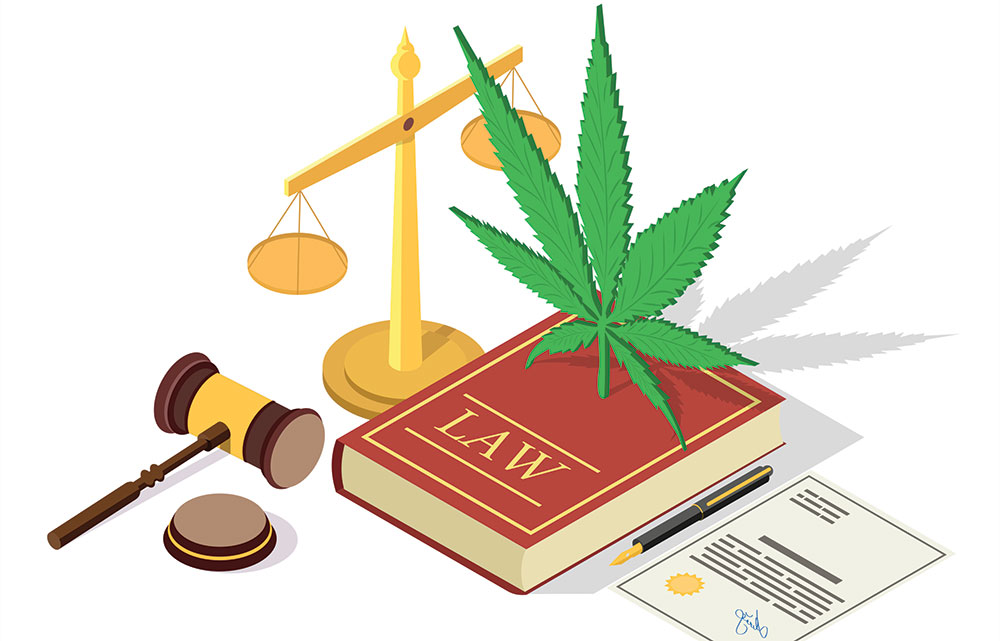The hemp industry has experienced tremendous growth since the 2018 Farm Bill, which federally legalized hemp cultivation in the U.S. However, changing regulations, state-by-state policies, and international compliance challenges continue to shape businesses’ operations. For cannabis industry professionals, staying ahead of regulatory updates, compliance requirements, and market shifts is essential to maintaining success in an evolving industry.
This article explores the current regulatory landscape, key challenges, and how hemp businesses adapt to changing compliance standards.
The Current State of Hemp Regulations
1. Federal Regulations: The 2018 Farm Bill and Beyond
The 2018 Farm Bill legalized hemp cultivation and defined hemp as cannabis containing no more than 0.3% THC. While this opened the door for hemp farming, CBD production, and product development, federal oversight remains fragmented.
Key federal agencies involved in hemp regulation include:
- USDA (U.S. Department of Agriculture) – Regulates hemp cultivation, licensing, and testing.
- FDA (Food and Drug Administration) – Oversees CBD as a food additive, supplement, and medical product, though its stance on CBD-infused foods and beverages remains unclear.
- DEA (Drug Enforcement Administration) – Monitors THC levels in hemp products, particularly with the rise of hemp-derived Delta-8 and Delta-9 THC.
The federal government was expected to introduce a new Farm Bill in 2023, which many state lawmakers hoped would clarify and close the loophole surrounding psychoactive hemp products left by the 2018 Farm Bill. However, in November 2023, President Biden extended the 2018 Farm Bill through September 30, 2024, delaying any immediate regulatory changes.
Then, on December 21, 2024, Congress enacted a second one-year extension, keeping the 2018 Farm Bill in effect until September 30, 2025. This extension gives lawmakers more time to negotiate and finalize a new comprehensive farm bill.
As the hemp industry awaits regulatory updates, stakeholders should stay informed on legislative developments that could impact cultivation, processing, and sales regulations in the coming year.
2. State-Level Regulatory Actions:
- Nebraska: Proposed legislation aims to redefine hemp to include a “total THC” limit, encompassing all THC isomers, thereby restricting products with significant levels of delta-8 THC and other intoxicating cannabinoids.
- Florida: Lawmakers have introduced bills to impose stricter labeling requirements and age restrictions on hemp products containing intoxicating cannabinoids, ensuring consumer safety and preventing underage access.
- Tennessee: The state has enacted laws prohibiting the sale of hemp-derived products that exceed a specified total THC threshold, effectively banning products with high concentrations of delta-8 THC.
- South Dakota: Legislation has been passed to regulate the sale of hemp-derived cannabinoids, including setting potency limits and requiring product testing to ensure compliance with safety standards.
- Arkansas: The state has implemented regulations that classify products containing intoxicating hemp-derived cannabinoids as controlled substances, restricting their sale and distribution.
- Alaska: New laws have been established to limit the sale of hemp-derived products with psychoactive effects, including setting strict potency limits and enforcing rigorous testing requirements.
- Virginia: The state has revised its hemp regulations to include total THC calculations, thereby restricting products with high levels of delta-8 THC and similar compounds.
Key Compliance Challenges for Hemp Businesses
1. THC Limits and Testing Requirements
One of the biggest hurdles for hemp businesses is THC compliance. The 0.3% THC limit is often challenging to maintain, especially for CBD and Delta-8 THC products.
Challenges include:
- Fluctuations in THC levels due to genetics, growing conditions, and extraction methods.
- Inconsistent testing standards between states, requiring businesses to meet multiple regulatory requirements.
- Risk of crop destruction if hemp exceeds the 0.3% THC threshold (often called “hot hemp”).
To remain compliant, hemp businesses must invest in robust testing protocols, maintain detailed batch records, and stay informed about federal and state THC limits.
2. FDA Uncertainty on CBD Products
Despite the booming CBD market, the FDA has not established clear guidelines for CBD-infused foods, beverages, and supplements.
Challenges for CBD businesses:
- Lack of federal approval for CBD as a dietary supplement.
- Inconsistent enforcement—some states allow CBD in food and beverages, while others prohibit it.
- Ongoing scrutiny over health claims—businesses cannot market CBD products with unverified medical claims.
Industry groups continue to push for FDA regulations that would provide clarity and stability for CBD businesses.
3. Banking and Payment Processing Issues
Despite federal legalization, many hemp businesses struggle with banking access due to the industry’s association with cannabis.
Challenges include:
- Limited access to business loans and credit lines.
- High processing fees or sudden account closures from banks and payment processors.
- Regulatory concerns over financial transactions involving hemp-derived THC products.
To navigate these issues, businesses are turning to hemp-friendly banks, blockchain payment solutions, and financial institutions specializing in cannabis-related businesses.
4. International Trade Barriers
Exporting and importing hemp products remain challenging due to differing regulations across countries.
Key challenges include:
- The EU’s stricter THC limits (often below 0.2% THC).
- Import/export restrictions in major markets like China, Canada, and Australia.
- Complex customs procedures for hemp-derived products.
Hemp businesses looking to expand internationally must stay updated on trade regulations, work with legal experts, and establish strong compliance programs.
How the Hemp Industry is Adapting
1. Investing in Advanced Testing and Compliance
Hemp companies are partnering with third-party labs to ensure compliance with federal and state THC limits. Many businesses are also implementing blockchain technology for supply chain transparency and traceability.
2. Advocacy and Industry Collaboration
Industry groups like Hemp Industries Association (HIA) and National Industrial Hemp Council (NIHC) are actively lobbying for clearer federal regulations on CBD, Delta-8 THC, and hemp-derived cannabinoids.
3. Diversifying Beyond CBD
With regulatory uncertainty around CBD and hemp-derived THC products, many hemp businesses are expanding into:
- Hemp textiles and eco-friendly packaging.
- Hempcrete and sustainable building materials.
- Hemp-based biofuels and industrial applications.
This diversification helps reduce regulatory risks and open new revenue streams.
4. Strengthening Legal and Compliance Teams
Hemp businesses hire legal and compliance professionals to navigate shifting regulations and avoid penalties. Having a dedicated regulatory affairs team is becoming essential for long-term success.
Looking Ahead: The Future of Hemp Regulations
The hemp industry is still in regulatory limbo, but upcoming changes in the 2023 Farm Bill and future FDA rulings may bring:
- A possible increase in THC limits (from 0.3% to 1%) to reduce crop losses.
- FDA guidelines for CBD-infused food and beverages, paving the way for market expansion.
- Federal banking reforms, providing better access to financial services.
To remain competitive in this evolving market, hemp professionals should stay informed, engage in industry advocacy, and proactively adapt to new regulations.
Final Thoughts
Navigating changing regulations and compliance in the hemp industry is a complex but necessary challenge for businesses looking to thrive in this evolving market. With federal policies shifting, state laws evolving, and international markets expanding, staying ahead of the regulatory curve is crucial.
By investing in compliance, advocating for policy changes, and diversifying product lines, hemp businesses can position themselves for long-term success in a high-growth, sustainable industry.




